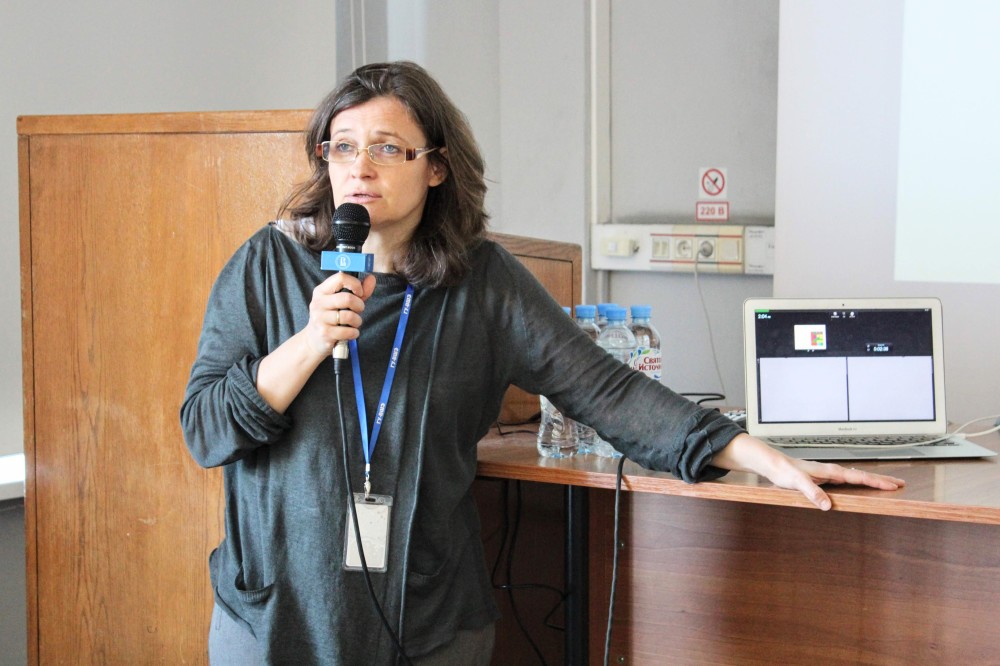- A
- A
- A
- ABC
- ABC
- ABC
- А
- А
- А
- А
- А
International Laboratory of Bioinformatics Opens at the Faculty of Computer Science
© iStock
On January 25, 2021, an International Laboratory of Bioinformatics opened at the Faculty of Computer Science. The main goal of the laboratory is to determine the role of alternative DNA structures in the genome.
Maria Poptsova, Associate Professor at the Big Data and Information Retrieval School will head the laboratory. Prof. Alan Herbert (USA), president and founder of InsideOutBio company, will be the lab’s academic supervisor. Prof. Herbert earned his PhD from the University of Auckland and has worked at MIT in the laboratory of Dr. Alexander Rich, who discovered Z-DNA, as well as at Boston University. Prof. Herbert is credited with discovering a protein that bonds with Z-DNA.
Maria Poptsova describes what the new laboratory will do.

International Collaboration
At our Research and Study Laboratory of Bioinformatics, we were building neural network models of deep learning that detect Z-DNA on the basis of omics data. As a result of our research, we published a paper in Scientific Reports. The principal author of the paper was Nazar Beknazarov, an intern at the laboratory and second-year Master’s student at HSE University. It turned out that Alan Herbert was one of the reviewers of our paper, and he liked what we had done, so we started up a correspondence. I read his papers on flipons – secondary DNA structures, which rapidly appear, do their work, and disappear. Alan invented the term ‘flipon’ (from ‘flip on’). This concept was very close to mine: the regulatory role of secondary DNA structures is turning on and off different genomic processes: our lab was doing research specifically on the role of secondary DNA structures. I invited Alan to become an academic consultant for our laboratory, and he agreed. Our online summer school on machine learning in bioinformatics played a major role in his positive decision. Alan joined us from Boston and was impressed both by the speakers and the students.
We have already started our joint work: Alan got our laboratory involved in a research project with Fox Chase Cancer Center in Philadelphia. They had experimental data on protein bonding regions with Z-DNA in mouse genomes after the impact of certain agents, and the laboratory students are already actively working on analysing this data. They found that Z-DNA plays a huge role in regulating the internal cell immunity — a kind of immunity that works inside the cell, by detecting an alien virus DNA or RNA. This is a new and thrilling area of work for the Laboratory of Bioinformatics.
Invited Researchers
We received a grant for opening an international laboratory, which allowed us to invite international experts. Alexey Shaitan, head of the Integrative Biology Group at the MSU Faculty of Biology Bioengineering Department has joined us. Alexey used to work in the USA at the renowned National Center for Biotechnology Information NIH. Today, his group is studying nucleosomes, and particularly, performs molecular modelling of nucleosome dynamics. We are planning a joint project on the role of secondary DNA structures as nucleosome barriers. Ivan Antonov, a graduate of the Faculty of Bioengineering and Bioinformatics, who earned his PhD at Georgia Institute of Technology under the supervision of Mark Borodovsky, has also joined us. Dr. Antonov works as the director of the Centre for Bioinformatics at Georgia Tech and currently heads the Department of Bioinformatics at MIPT.
Future Plans
The laboratory is going to continue studying the role of secondary DNA structures. We are going to test the newest deep learning algorithms in their application to problems in genomics. Thanks to Alan, we hope to get an opportunity to analyze the latest experimental data generated at laboratories across the globe.
In addition, our laboratory participates in projects by the Consortium for Genetics of Cardiovascular Diseases. At our Research and Study Laboratory of Bioinformatics, we have begun work on projects in personalized medicine. As part of our cooperation with the RMAPO Institute of Personalized Medicine (of which the area supervisor is Rector Dmitry Sychev), we are building machine learning models to predict individual intolerance to drugs. We are also planning a project on genotyping patients with cardiovascular diseases as part of our cooperation with the Central State Medical Academy of the Department of Presidential Affairs (area supervisor Dmitry Zateishikov). The goal of all projects is to create a database of national mutations. A model for us in this endeavour is the Cardiovascular Disease Knowledge Portal created by Harvard and MIT.